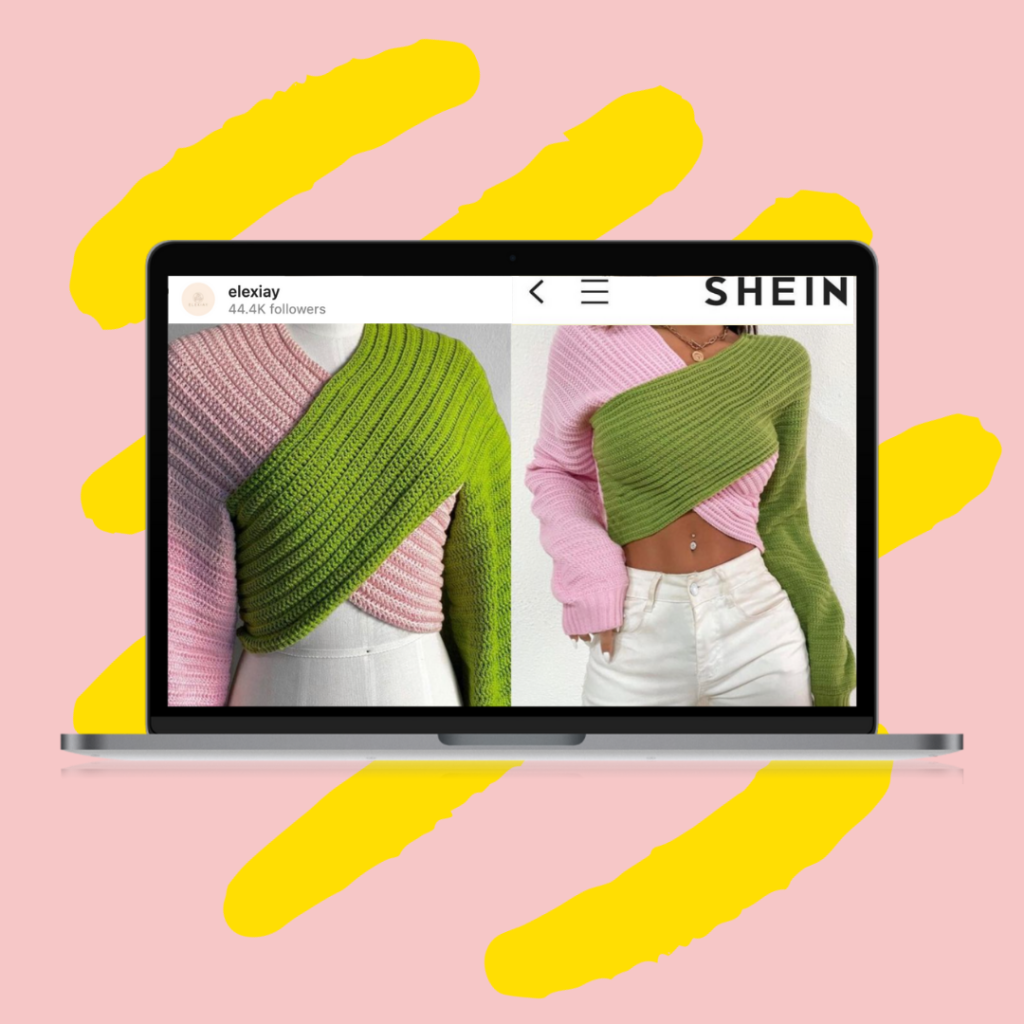The brand Shein has exploded in recent years. Founded in 2008, it has since become a favourite of many fashion bloggers, especially on Instagram and TikTok. Shein itself states that it “prides itself on offering on-trend styles catering to both young women and teens, that won’t break the bank”.
Shein also states that it is a “fast fashion e-commerce company”. As most of us know, the world of fast fashion is very problematic for a wide variety of reasons; the recent focus being the impact it has on the environment. Fast fashion brands like Shein boost high carbon emissions, water pollution and landfill waste. Many clothes are only worn once before being thrown away or left at the bottom of a closet for years.
As well as the detrimental impact the brand has on the environment being a main point of contention, in recent months Shein has also been called out for stealing designs from small Black creators.
Most of us have probably bought from a fast-fashion brand at least once in our lives, with brands like New Look, Pretty Little Thing and ASOS reflecting some big brands that unveil new clothes every day. In the creation of making on-trend clothing quick, its designs have been called into question.
Shein has come under fire for stealing designs from small Black fashion designers. One of those designers being @Tomoiasorojah on TikTok. Sorojah has discussed Shein stealing designs from her small business and how she sews all the garments that she sells, making it incredibly difficult for her to compete with a large brand such as Shein. Sorojah also pointed out that she has seen a pattern with Shein stealing from creators who don’t have large followings online, and how there isn’t anything she or other creators can do legally.
Unfortunately, Sorojah is not the only Black designer who has claimed the brand has stolen from them. @MariamaDiallo__ on Twitter also spoke out about how Shein stole her designs, and how the product they created is practically identical to her own.
You don’t have to be morally superior to figure out that stealing from other creators is not something to “pride” yourself on. Stealing from marginalised communities, however, is a much deeper problem, especially considering how algorithms on platforms such as TikTok have been accused to promote white creators more than Black creators, no matter the content – as discussed by NBC News. The problem is an intersectional one, and we cannot ignore how Black creators are being treated online. Shein reflects a much greater problem, and it is time that it is discussed and challenged.
Shein has also been under fire for the creation of Islamic prayer rugs as being decorative, along with selling the swastika logo in its original form. To complicate matters further, it is unclear what the working conditions are like for the manufacturers’ of the brand, bringing Shein’s transparency into question. We can only assume that with the sheer mass and speed of production it is something we should be concerned about. These issues make it clear that Shein is a company that we should not be supporting.
As a generation of week-long trend cycles and toxic beauty standards, we have to do what we can to change the status quo. Supporting small businesses is not always an affordable option, and that’s ok, but there are ethical options out there. #BoycottShein.
For more information on how to shop ethically, read our article on sustainable fashion here.
